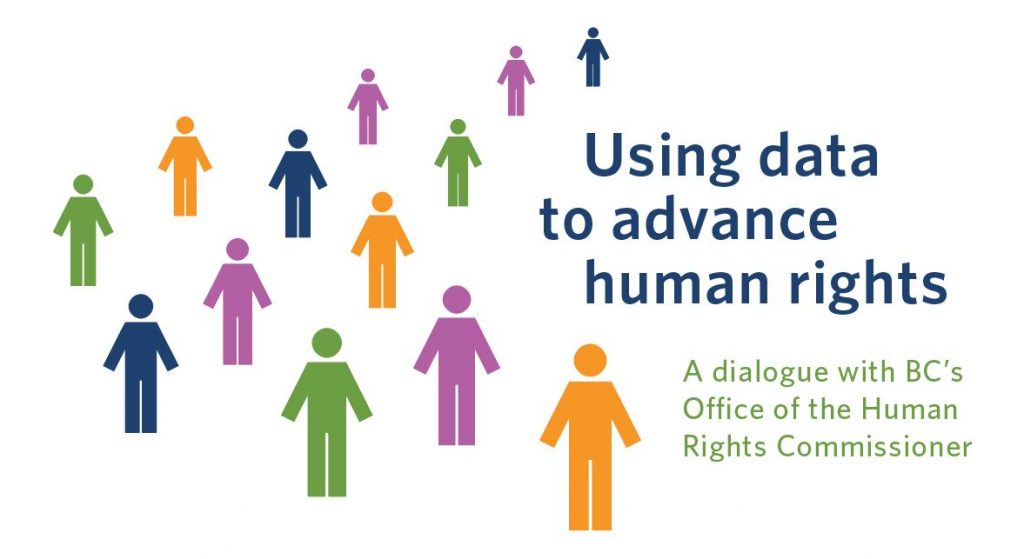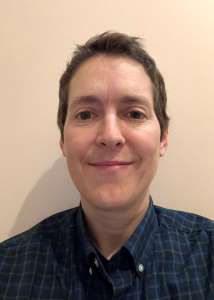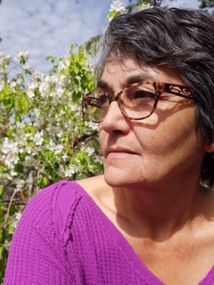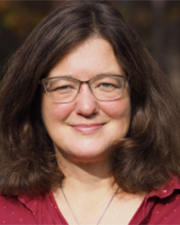Data and Human Rights Webinar

Date: Thursday, January 14, 2021
Time: 4:00 pm – 5:30 p.m. PST | 7:00 – 8:30 p.m. EST
Format: Panel Presentation followed by a moderated Q&A.
Cost: Free, registration is required
Abstract
Join the Office of the Provost and Vice-President Academic, UBC Okanagan and the Office of the Vice-President, Health (UBC Health) for a webinar that will spark conversation between UBC and BC’s Office of the Human Rights Commissioner on the collection of disaggregated data to advance human rights.
Powerful statements are made possible by disaggregated data. By making systemic racism and inequalities in our society visible, data can lead to positive change. The same data, used or collected poorly, can reinforce stigmatization of communities, leading to individual and community harm.
Kasari Govender, B.C. Human Rights Commissioner, and Trish Garner, primary researcher and Executive Director of Research and Policy, along with a community member, will lead a discussion on the Disaggregated demographic data collection in British Columbia: The grandmother perspective report. The webinar will be the start of an ongoing conversation about how this report informs the responsibilities of researchers and UBC as an institution.
The report calls for the collection of data needed to develop policy that effectively addresses systemic inequalities—data that reflects the lived experiences of many, allowing their stories to be amplified and heard clearly by those in power. The report also includes recommendations for the collection and use of disaggregated demographic and race-based data to reveal and address systemic racism and inequities in our province and enables meaningful involvement of affected populations.
About the Speakers
Kasari Govender
B.C.’s Human Rights Commissioner

Kasari Govender (she/her/hers) took office as B.C.’s first independent Human Rights Commissioner on September 3, 2019. Her role is to lead the promotion and protection of human rights in British Columbia through the Office of the Human Rights Commissioner.
Govender has devoted her life to promoting human rights, with a focus on the rights of those most marginalized and vulnerable. From 2008 until 2019, Govender held leadership positions at West Coast LEAF, including as Executive Director from 2011. Earlier work includes pivotal roles in establishing the Rise Women’s Legal Centre, a nonprofit legal clinic in British Columbia.
Govender earned her law degree from the University of Victoria and her Master’s Degree in International Human Rights Law from the University of Oxford, U.K. She has taught as an Adjunct Professor of Law at the University of British Columbia and as an instructor at Simon Fraser University. In 2019, her work was recognized by the Women Lawyer’s Forum with their Award of Excellence. In addition to her role as Human Rights Commissioner, Govender is a mother, an aunt, a daughter and a sister.
Trish Garner
Executive Director, Research & Policy, BC’s Office of the Human Right Commissioner

Trish (they/theirs) is a tea-swilling Brit with a passion for social justice. Having gained their experience at the Canadian Centre for Policy Alternatives and working with Raise the Rates, an anti-poverty group based in the Downtown Eastside of Vancouver, they led the BC Poverty Reduction Coalition for eight years before joining BCOHRC. Through this work with people in poverty, they came to learn that it all comes down to relationships grounded in respect for each other, so they try to slow down to take the time to build trust and relationships with folks and now bring this foundation to their work.
They are excited about the systemic mandate of BCOHRC because they believe in going upstream to tackle the root causes of issues to prevent the crisis. They have graduate degrees in both engineering and gender studies, as well as experience in community-based research and policy analysis, and strive to do research differently to make a difference. They are inspired by all who came before them in this work and those who are currently organizing for social change.
To get away from it all, you will find them on the ocean with their partner and three kids.
Gwen Phillips
BC First Nations Data Governance Initiative Champion, Ktunaxa Nation

Gwen is a citizen of the Ktunaxa Nation and has worked for the Ktunaxa Nation Council for the past thirty-seven years, holding a variety of senior management functions, at times overseeing departments of Education, Health, Corporate Services, Traditional Knowledge and Language and for the past decade, functioning as the Director responsible for Governance Transition; leading the Ktunaxa Nation back to self-government.
Gwen is currently championing the BC First Nations’ Data Governance Initiative (bcfndgi.com); a tripartite government initiative (federal, provincial and First Nations governments) with a key objective being that federal, provincial and First Nations governments, have timely access to quality data to plan, manage and account for investments and outcomes associated with First Nations well-being. As a member of the First Nations Health Council, Gwen is part of the team that negotiated the transfer of Health Canada’s BC Region First Nations and Inuit Health Branch to First Nations control, and she represents BC First Nations’ interests nationally in Data Governance, as a member of the First Nations Information Governance Centre Board.
Gwen is also assisting Indigenous Services Canada in the implementation of their Indigenous Community Development National Strategy; a co-developed approach to manage the shift from program-based funding and reporting relationships, to community-driven investments and reporting that is aligned with Community-driven, Nation-based development plans. These Governance Planning Pilots involve over 170 First Nation communities from all across the country.
Gwen has extensive experience in relationship building and has developed and instructed First Nation Studies courses at the elementary, secondary and college levels and continues to function as a public educator. Her formal education is in Business Administration and she has operated her own small business, as a community planner, facilitator/trainer, artist and curriculum developer. Gwen’s most enjoyable pastime as of late is being at the river or elsewhere on the land, with her 12-year-old granddaughter and just spending time with her family.
oPENING REMARKS
Dermot Kelleher
Vice-President, Health, UBC
CLOSING REMARKS
Kim McGrail
Faculty, Centre for Health Services and Policy Research
MODERATOR
Ananya Mukherjee Reed
Provost and Vice-President Academic, UBC Okanagan


